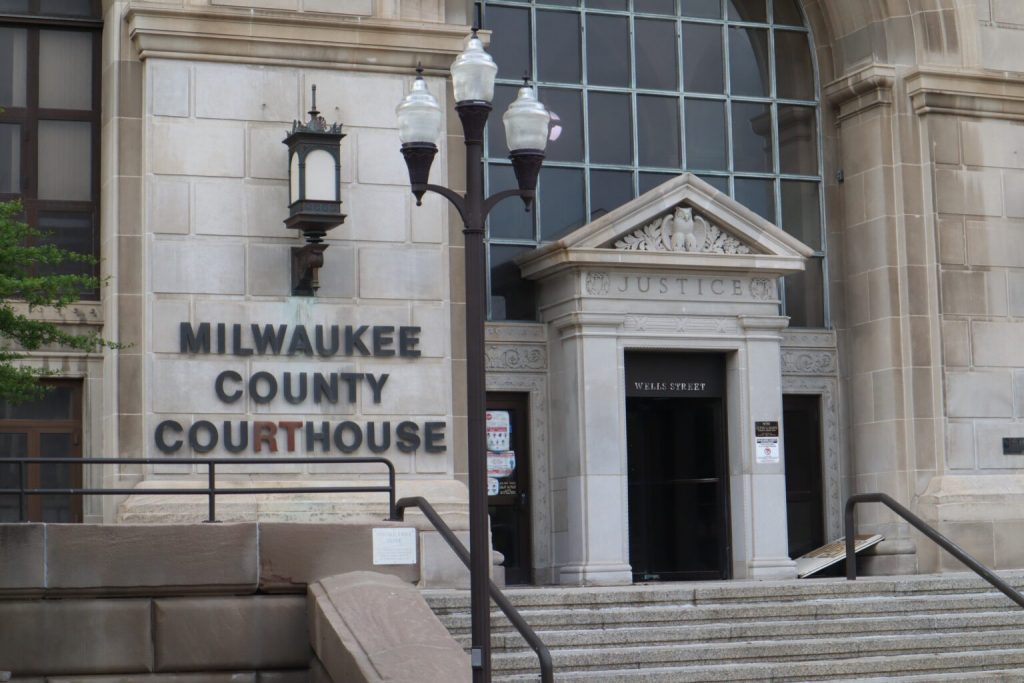Disability Rights Wisconsin Faces Huge Funding Cut
Federal funding for victim advocacy program slashed.
Kristina Jackson, a survivor of domestic violence who has struggled with depression, said Disability Rights Wisconsin held her hand through her court process and for some of the time after it was finished. The support, which came through DRW’s Victim Advocacy Program, came in the form of Pam Malin, her advocate, and a DRW attorney who attended court hearings with her, helped her get connected with community resources and helped her move after her son started reexperiencing trauma in their home.
Jackson, who is a social worker, said she had “never been in a situation to this extreme” and had never been the person in need of help.
“When I ended up being the person that needed the help, I realized I didn’t really know where to go, and … at that time, DRW really helped me to feel comfortable with accepting the help.”
In part because of the help the organization provided, Jackson and her son have gotten to a place she describes as “really good.” They’re in a new home and Jackson works with a nonprofit program in Milwaukee where she helps mentor youth.
“I’m grateful. I’m blessed to be alive and … [I’m] able to pour back into the community,” Jackson said.
The same DRW program that helped Jackson and many other victims over the years is now facing funding cuts.
Nadya Rosen, the managing attorney for the Victim Advocacy Program at DRW, told the Examiner that through the program people with disabilities who are victims of crimes “can come to us when they need assistance understanding more about the legal process, reporting the crime, getting representation in a family law case that in part stems from the crime or the crime is relevant to that.” This has included victims of all crime types, including including domestic violence, sexual assault and robbery and since 2019, DRW has received received $872,000 to do this work from the state of Wisconsin.
The money, which makes up the bulk of the funding for DRW’s victim advocacy program, comes through the Wisconsin Department of Justice’s Office of Crime Victim Services, which has been receiving about $44.5 million per year from the federal Department of Justice to administer Victims of Crime Act (VOCA) grants. This year, however, the Wisconsin crime victims’ office will only receive $13 million, due to federal funding shortfalls.
The federal funding that has been distributed to states including Wisconsin was collected from fines and penalties from people and corporations convicted of federal crimes. That pot of money has shrunk from more than $4 billion to $1.5 billion as of May.
As a result of the cuts, Wisconsin organizations that applied for VOCA grants for the 2024-25 cycle were only allowed to request up to $250,000 (and potentially may not receive the full amount).
DRW is now looking at filling a $620,000 per year gap.
“There’s not one grant that I can get that will fill that hole,” Rosen said.
Federal and state governments and advocacy organizations knew the shortfall was coming. But funding from the state of Wisconsin is limited and Congress has failed to act, which has left Rosen trying to piece together funding so that DRW can continue to do the full scope of its work.
This year the Wisconsin Legislature passed and Gov. Tony Evers signed a bill that sought to fill some of those gaps by allocating $6.4 million for sexual assault victim services grants, $2.4 million for domestic abuse grants and $1.2 million for child advocacy grants — a total of $10 million.
Rosen noted that while the funding is helpful, it’s also temporary, with a sunset date in June 2025. In addition, Disability Rights Wisconsin is not eligible for some of the funding and the funding doesn’t encompass the full scope of victim advocacy work DRW does.
“That’s really where the crisis comes from,” Rosen said.
While the organization is not eligible for funds meant to help victims of sexual assault due to the way its program is structured, she said DRW is eligible for the set of funds meant to help with victims of domestic violence and is working on submitting an application.
Rosen said DRW has applied for a number of federal grants as well through the Office on Violence Against Women, including legal assistance for victims grants, outreach and services to underserved populations grants and rural grants. She said this will “tide us over to some degree.”
However, Rosen noted those grants are also limited to working with survivors of sexual assault, domestic violence, dating violence and stalking — leaving a big gap for other survivors DRW has been working with over the last several years.
“People with disabilities are disproportionately targeted and therefore victimized by crime, and the crimes that they experience are not just domestic violence and sexual assault. In fact, they are significantly impacted by identity theft, theft in general, by harassment, by stalking. There’s also assault, neglect — all of those things that are associated sometimes with having to have care providers in their homes. …I can’t work with people who have been victimized in those ways using those other grants,” Rosen said. “It means that the full complement of folks that we used to work with under the VOCA grants are just not going to get served, and they’re not being served by anyone else either.”
Rosen said regular, predictable funding in Wisconsin whether that comes through Congress or state funding would “be a sustaining force for victim services.”
A bipartisan group of 42 attorneys general, including Wisconsin AG Josh Kaul, called for Congress to stabilize the VOCA funding in February.
However, until then, Rosen said that many organizations including DRW will continue to deal with the reality of cuts and figuring out how to continue providing services.
“All of us who provide victim services are really constantly hoping that the fund level won’t drop too much and that we’ll consistently get the money,” Rosen said. “It’s very difficult, then, to plan ahead or to not be concerned about the life of your program when you know that there are these sort of ebbs and flows that come from whether a fund is full or not, or whether Congress is going to agree this year or not that year.”
Disability Rights Wisconsin faces cuts to victim rights advocacy grants was originally published by Wisconsin Examiner.






















More $$$ needed for helping convicts get a second third etc. opportunity to engage in a new lifestyle. Victims , oh well they should just be lucky to be alive. Signed , violent crime victim. 1995.